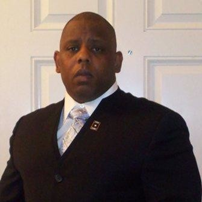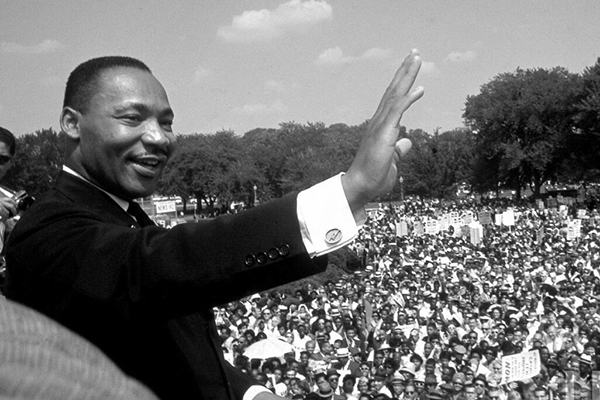Don’t weaponize the word ‘woke’; all parts of Black History are an essential part of American History
By Dr. Shawn G. Willis
LEARNING AND DELIVERY AND DESIGN PROFESSIONAL, WASHINGTON STATE
Dr. Martin Luther King Jr. provided our nation with an inspiring and motivational speech that will echo through the ages as long as all people from different backgrounds are not treated equally and indeed offered opportunities based on that simple premise. Rosa Parks became an icon for refusing to give up her seat on a Montgomery, Alabama bus on December 1, 1955; Congress recognized Rosa Parks as the Mother of the Civil Rights Movement in 1999. President John F. Kennedy: a supporter of the Civil Rights Movement, tragically lost his life by an assassin’s bullet in November 1963.
All three great Americans made great and ultimate sacrifices in the quest for all to be treated equally in the eyes of the law, but they were not the only ones who paved the way for them. Accurately learning about the inventions, contributions, and sacrifices of people of color, not just the ones the culture has deemed ‘safe and significant,’ helps to instill pride while acknowledging that more than one race is responsible for the greatness of the United States of America.
Dr. Martin Luther King Jr. was born on January 15, 1929, and is the most known member of the Civil Rights Movement, which began in 1955. Dr. King began his ministry in 1954 at Dexter Avenue Baptist Church, taking over from another Civil Rights leader who was fighting for Civil Rights when it was not popular to do (even by his own people), Dr. Vernon Johns (April 22, 1892 – June 11, 1965). Long before Rosa Parks refused to give up her seat, Dr. Johns was fighting for equal rights on transportation and inspiring others like his niece Barbara Johns, who filed a lawsuit that was one of the five cases combined in the Brown vs. Board of Education leading to the desegregation of public schools by the United Supreme Court. You can see more about him in the television film Road to Freedom: The Vernon Johns Story (1994). James Earl Jones portrays him. Unfortunately, most of us may not know about the people mentioned because the ‘culture’ does not communicate much about them, and some of the organizations within the institutions of education and politics reinforce the ‘work’ of the culture by enacting policies to prevent it.
Nine months before Rosa Parks was ‘chosen’ to be the face of the bus boycott, another young lady was denied her rightful place in history for having the courage to say ‘no’ for not being treated fairly on a segregated bus. Her name is Claudette Colvin, and she was 15 years old when she was arrested on March 2, 1955. She was ‘manhandled’ off the bus, handcuffed, and treated worse than Rosa Parks. Although she is still alive today, her story and rightful place in history are not told because a committee that included Dr. King decided to wait for a ‘better’ case to pursue. After all, the incident involved a minor and circumstances beyond her control. Nevertheless, learning about her ordeal can help us understand some attitudes and behaviors between specific demographics and law enforcement. Read her story in ‘The Girl Who Acted Before Rosa Parks.’
Between June 12, 1963, and January 26, 1969, five champions of Civil Rights lost their lives, but only three are talked about, depending on where you went to school. The three most commonly talked about are Dr. King, President Kennedy, and his brother Robert. But two other champions interestingly suffered similar fates six years apart Medgar Evers (1963) and Washington State’s version of him, Edwin T. Pratt (1969). Both were assassinated in front of their homes, and for nearly 30 years, both cases had remained unsolved (Edwin Pratt’s still is) even though the assailants were arrested; laws that allowed for all white juries made way for them to be set free. Why is this important, you ask? It’s because history will, in some fashion, continue to repeat itself if we don’t strive to understand how the dynamic structure of racism affects our culture, institutions, and the racial socialization of individuals.
If we don’t want history to continue repeating itself, we have to provide our current and future leaders from all backgrounds with an accurate account of the Civil Rights struggle, or many will continue to believe it didn’t really start until the 1960s and that we are ‘much better than where we started.’
REFERENCES
MLK’s struggle against white supremacy continues even today | Guestview (yahoo.com)
Dec 1, 1955, CE: Rosa Parks Arrested | National Geographic Society
The Girl Who Acted Before Rosa Parks | National Women’s History Museum (womenshistory.org)
Murder of Medgar Evers – Medgar Evers College (cuny.edu)
Edwin T. Pratt (1930-1969) • (blackpast.org)
He Killed Edwin Pratt | Seattle Weekly
Civil Rights Martyrs | Southern Poverty Law Center (splcenter.org)








